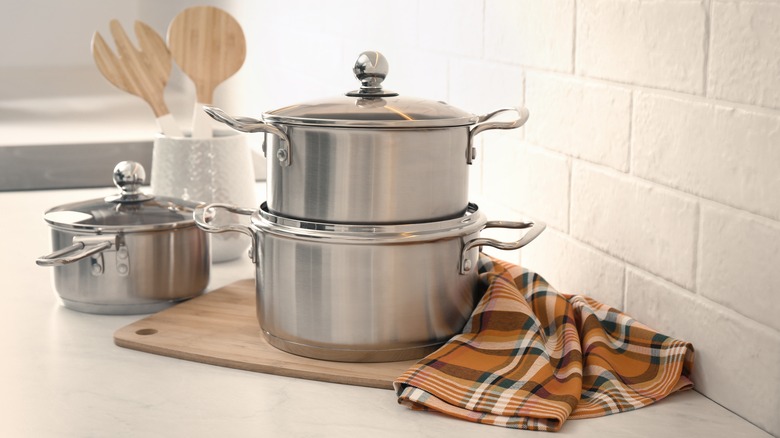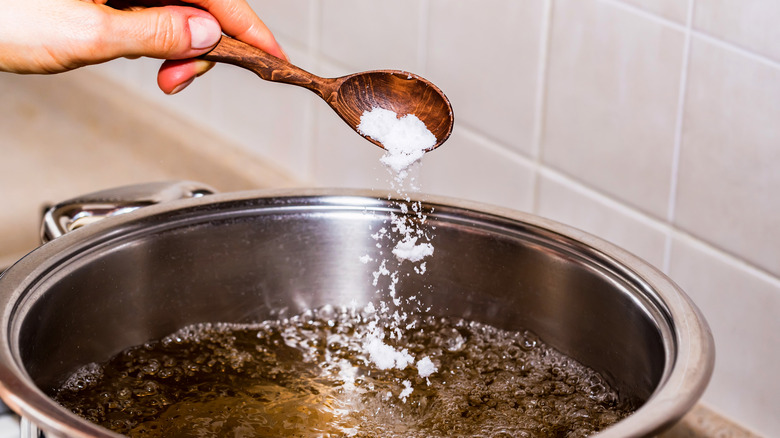The Salting Mistake That Can Ruin Stainless Steel Pots And Pans
Whether you're a seasoned at-home chef or an occasional cook out of necessity, you're likely familiar with some basic cookware care. From keeping metal utensils away from nonstick surfaces to learning how to properly clean and season cast iron, knowing simple dos and don'ts when it comes to cookware will ensure the longevity of your items. Plus, it will keep you from having to dig into your pockets to replace pots and pans. However, some cookware is more high maintenance than others.
On the lower maintenance end, cooking with stainless steel pots and pans is a great choice, as they're relatively easy to care for. They can go in the dishwasher for quick and efficient cleaning, and they're convenient for stove-to-oven recipes. However, there are some things to keep in mind when cooking with these pots and pans that will save you from having to replace your reliable stainless steel cookware. One lesser-known mistake to avoid has to do with salt.
Salt your pasta water the right way
It may seem that stainless steel cookware is indestructible, but something as simple as salting your pasta water the wrong way can have your pots reaching the end of their life much sooner than they should. It's likely you'll use your trusty pots to boil pasta water at some point, so listen up to avoid this irreversible mistake.
If you're a fan of pasta making, you know it's important to season your pasta water with salt generously, but, did you know that you shouldn't add your salt to the water before it starts boiling? If you are frequently adding salt to cold water in your pot, it's possible this action can result in something called pitting.
Pitting is a form of rusting in which the stainless steel surface is damaged by the salt. This occurs when the pot's once protective layer of chromium oxide starts to break down, and it often forms many tiny circular indents across the stainless steel surface. However, salting at the right time can prevent this because it ensures the salt will dissolve right away rather than settling at the bottom.
Pots and pans with pitting are still food safe — though it will affect the cookware's performance slightly — so it's okay to keep using your pots if they have some pitting on them. The good news is you can prevent it from spreading by salting your water at the appropriate time.

